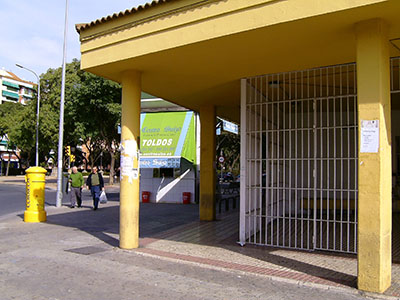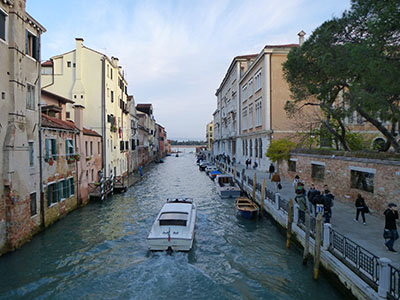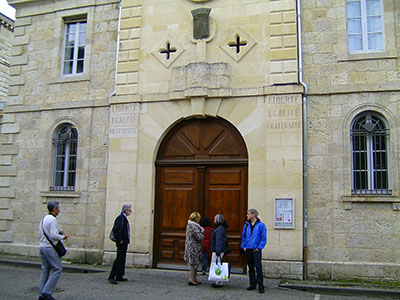
The German School of Stockholm has a history of more than 400 years of education. The ages range from Kindergarten to the German and Swedish international Baccalaureate. At the moment there are 598 students. The school is a bilingual school with German and Swedish as the predominant languages, but there are also many pupils with other backgrounds. At the moment 13 languages are spoken at our school. Foreign languages – English, French and Latin – are as important as the strengthening and development of German and Swedish. Other subjects taught include Maths, Physics, Chemistry, Biology, Computer Science, History, Geography, Socio-Economic Studies, Sports, Music, Art and Drama. Extra-curricular activities include music, vocals, film, an environmental group, dancing, and various clubs, like a library club and a science club. The school offers work placements in Sweden and abroad, students take part in different school exchanges, e.g. with institutions in Germany and the French International School of Stockholm.
Being a bilingual school with students coming from different national backgrounds we have a natural international focus in our work. However, a participation in the Erasmus+ project would be a unique chance to involve more students in activities that are centered around connections with other European countries and deal with European history, presence and future. They could meet with students from other European countries, and work on issues that are crucial to living conditions, their identity and their future. By this, we want to foster a way of “European thinking”. As our school houses students from varying socio-economic backgrounds, being funded by the EU also would enable students with low income background to experience inter-cultural exchange on a whole new level.
Key people in charge of the project will be the coordinator and a team of teachers, all experts with respect to their subjects. The coordinator is experienced in the areas of international exchange and intercultural learning arrangements though has not yet worked within an Erasmus+ project. The school participated in a former Comenius project in 2005-2007, yet all the participating students have completed school by now and even most of the staff enrolled is no longer present because of the regular circulation of expatriate teachers. Most of the teachers involved are familiar with interdisciplinary teaching, all of them with project work, the integration of it into the curriculum, ICT, evaluation and speak at least two foreign languages.
www.tyskaskolan.se

 s a five-minute walk from the town centre of Huelva. The school consists of two buildings connected to each other. The main building houses Secondary Education and Vocational Studies classrooms, specific computer rooms, a Music room, a Languages lab, a multi-purpose space (gym, lecture theatre, a stage) and the library with regard to facilities, the school Administration and Management Team offices (Headmaster, Head of Studies, etc.), the Teacher's room and seminars. On the other hand, larger rooms for Bachillerato and some more computer rooms are in the second building. There is a big playground with two versatile sport courts. At present, there are about 75 teachers in the staff and the number of students enrolled in 2014 was 952, distributed as 40% of students at Secondary Education and 60% at Vocational Studies and further education for adults. There are morning and evening shifts. The students' ages range between 12 and 20 in Compulsory or Post Compulsory education, older in the case of adult groups.
s a five-minute walk from the town centre of Huelva. The school consists of two buildings connected to each other. The main building houses Secondary Education and Vocational Studies classrooms, specific computer rooms, a Music room, a Languages lab, a multi-purpose space (gym, lecture theatre, a stage) and the library with regard to facilities, the school Administration and Management Team offices (Headmaster, Head of Studies, etc.), the Teacher's room and seminars. On the other hand, larger rooms for Bachillerato and some more computer rooms are in the second building. There is a big playground with two versatile sport courts. At present, there are about 75 teachers in the staff and the number of students enrolled in 2014 was 952, distributed as 40% of students at Secondary Education and 60% at Vocational Studies and further education for adults. There are morning and evening shifts. The students' ages range between 12 and 20 in Compulsory or Post Compulsory education, older in the case of adult groups.
 s located in Agen in the South-West of France, halfway between Bordeaux and Toulouse. The region is rural but some food-processing industries are located here. Most students were born in the region. Some of them are second generation immigrants from North Africa.
s located in Agen in the South-West of France, halfway between Bordeaux and Toulouse. The region is rural but some food-processing industries are located here. Most students were born in the region. Some of them are second generation immigrants from North Africa. econdary school in Putignano is a comprehensive grammar school with four specializations: Grammar school specializing in humanities, Grammar school specializing in modern languages, Grammar school specializing in science, Grammar school specializing in applied science. The school has recently moved to new premises with 45 classrooms, 10 laboratories and numerous other very modern facilities. The staff comprises the headmaster, two deputy teachers, the school secretary,67 teachers (among which 7 are part of the middle management), 6 office clerks, 3 technicians and 11 school employees (janitors).
econdary school in Putignano is a comprehensive grammar school with four specializations: Grammar school specializing in humanities, Grammar school specializing in modern languages, Grammar school specializing in science, Grammar school specializing in applied science. The school has recently moved to new premises with 45 classrooms, 10 laboratories and numerous other very modern facilities. The staff comprises the headmaster, two deputy teachers, the school secretary,67 teachers (among which 7 are part of the middle management), 6 office clerks, 3 technicians and 11 school employees (janitors).